Filipino communities, alongside Greenpeace Philippines and the Legal Rights and Natural Resources Center (LRC), commended the Philippine government’s strong oral arguments at the International Court of Justice’s Advisory Opinion (ICJAO) proceedings in The Hague, Netherlands. Advocates called the statement a beacon of hope for climate-impacted communities, particularly in the wake of disappointing outcomes from COP 29 in November.
The ICJ, the world’s highest judicial authority, is deliberating on state obligations concerning climate change, as well as the consequences of failing to meet these obligations. States and intergovernmental organizations from across the globe are presenting their cases. Advocates believe this pivotal moment could redefine international law, providing clarity on nations’ responsibilities in combating climate change and addressing its catastrophic impacts.
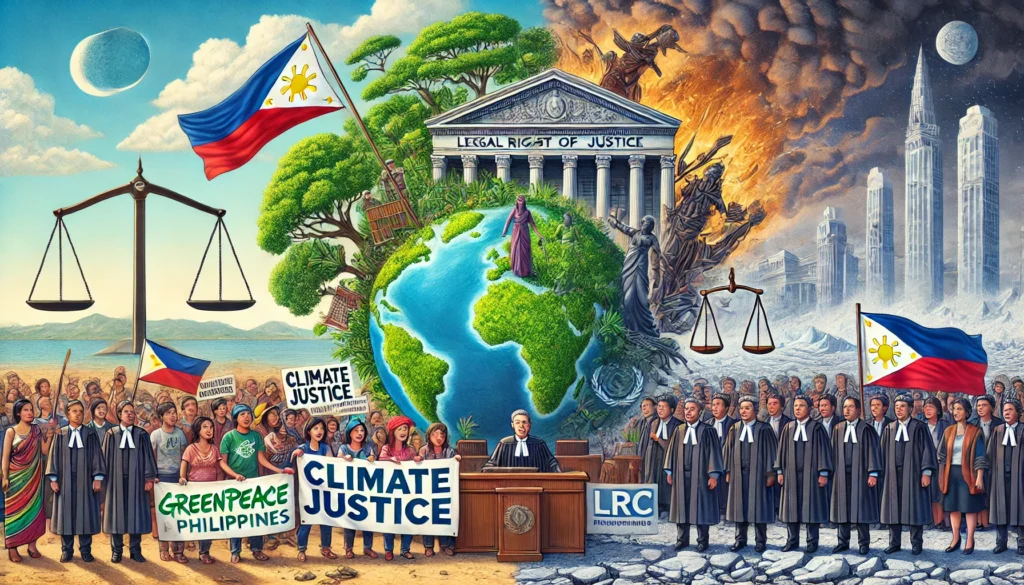
Filipino advocates and organizations unite for climate justice, emphasizing accountability and resilience at the International Court of Justice in The Hague.
A Call for Global Accountability
Atty. Ryan Jay Roset, senior legal fellow at LRC, emphasized the significance of the ICJ’s advisory opinion:
“The ICJ’s advisory opinion has moral and persuasive authority. It provides a legal basis to interpret international law, reinforcing that states have a legal obligation to address climate change. This can eventually drive action to prevent or address climate harms, carrying immense value for climate justice.”
On December 2, the Philippine government boldly declared in its oral argument that climate change is an “existential human rights issue” and that combating it requires a unified application of international laws and treaties.
The Philippines underscored two key points:
- Obligation Not to Cause Transboundary Harm: Countries must ensure that activities within their territories respect the environment of other nations and areas beyond national jurisdiction.
- State Responsibility: Nations causing harm through climate inaction or wrongful conduct must take remedial actions, including reparations to affected states.
This statement follows Greenpeace Philippines’ March 2024 brief to the ICJ, which combined legal arguments, scientific data, and testimonies from global communities, including Filipino typhoon survivors, Saami Indigenous Youth, and South African activists.
Filipino Advocacy on the Frontlines
Filipino advocates continue to amplify their demands for climate justice on multiple fronts. On Monday, youth activists, alongside LRC and Greenpeace Philippines, protested at the Philippine International Convention Center, criticizing fossil fuel companies and rich nations for their insufficient climate action.
Simultaneously, Frank Melgar, a survivor of Super Typhoon Rai and climate litigation plaintiff, shared his story in France, shedding light on the harrowing impacts of climate disasters in the Philippines. Next week, communities from Dinagat Islands, Eastern Samar, and Bataan will host the People’s Museum of Climate Justice at The Hague, highlighting grassroots stories of resilience and hope.
Greenpeace Urges Marcos Administration to Take Bold Action
Greenpeace Philippines Country Director Lea B Guerrero hailed the government’s ICJ arguments, urging President Marcos Jr.’s administration to sustain its climate justice agenda. Guerrero outlined key demands:
- Pass the Climate Accountability Bill and initiate legal actions against fossil fuel companies.
- Advocate for reparations and innovative funding mechanisms like the Climate Damages Tax.
- Abandon plans for nuclear energy and fossil gas expansion.
- Implement economic reforms to foster climate resilience.
“The Philippine government’s strong submission to the ICJ signifies its alignment with impacted communities. It must now champion a climate justice agenda and ensure meaningful, lasting solutions for those on the frontlines of the climate crisis.”
Voices from the Ground
Ka-Jimmy Ceguerra, a community leader from Barangay Tumana, Marikina City, stressed the importance of direct access to climate disaster funds for vulnerable communities:
“Corruption often prevents relief funds from reaching those in need. Communities must be included in decision-making processes to ensure their actual needs—both short- and long-term—are addressed.”
The Path Ahead
As the ICJAO proceedings continue, the Philippines’ strong stance is a promising step in the global fight for climate accountability. With communities, legal advocates, and international institutions rallying behind the cause, the world watches closely as history unfolds at The Hague.
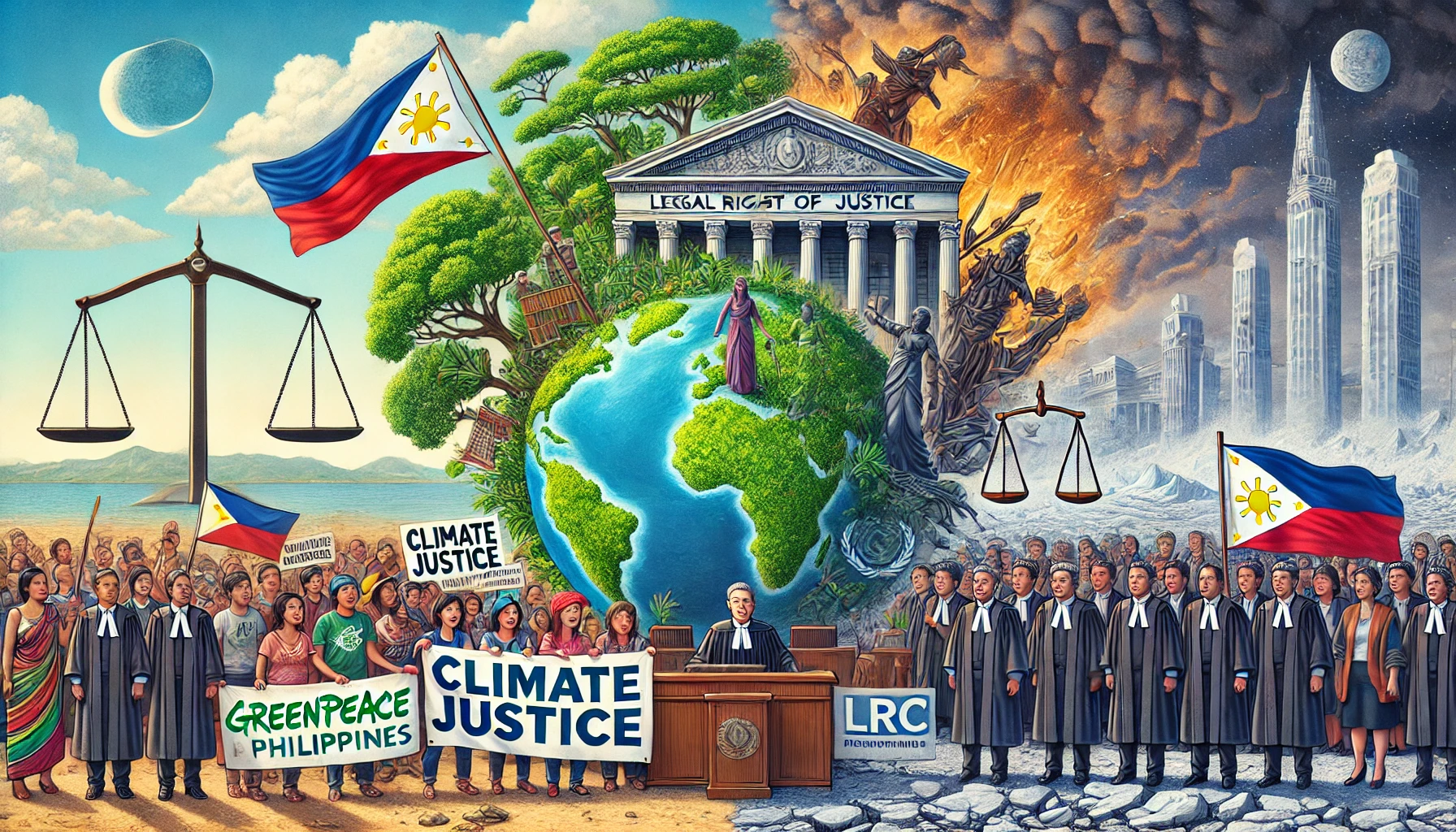
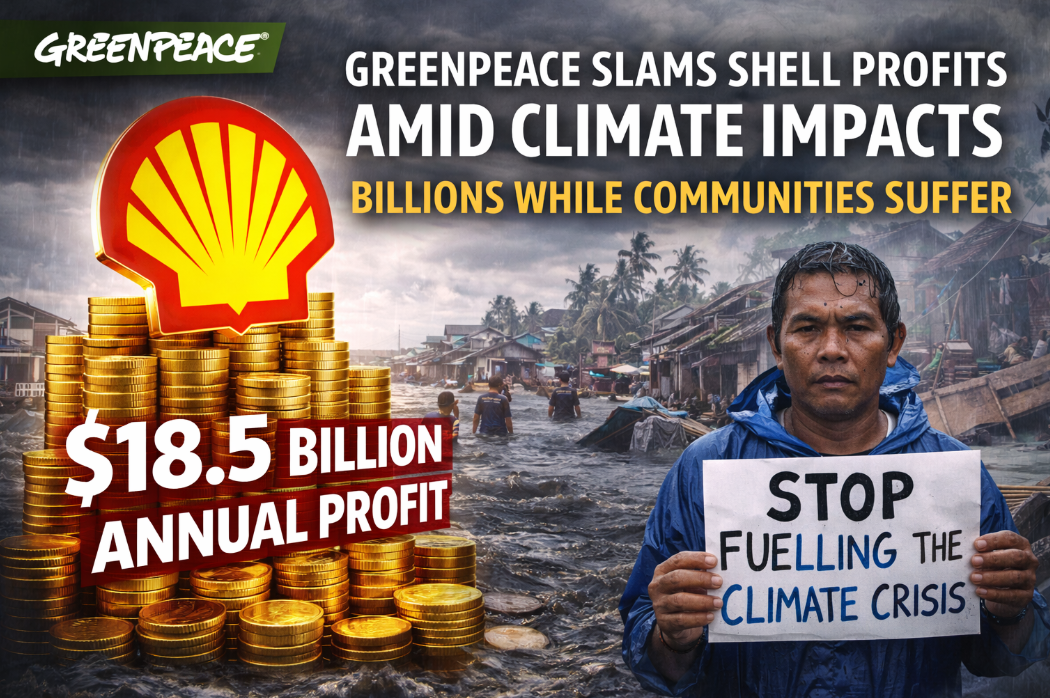

![Greenpeace calls for accountability as Filipinos rebuild after Uwan’s devastation. [photo credit: Jilson Tiu | Greenpeace]](https://ecofriendlytip.com/wp-content/uploads/2025/11/JTIU7946-scaled.jpg)

![Climate activists demand accountability from major fossil fuel companies. [photo credit: Ivan Joeseff Guiwanon | Greenpeace]](https://ecofriendlytip.com/wp-content/uploads/2025/10/Island-008-scaled.jpg)
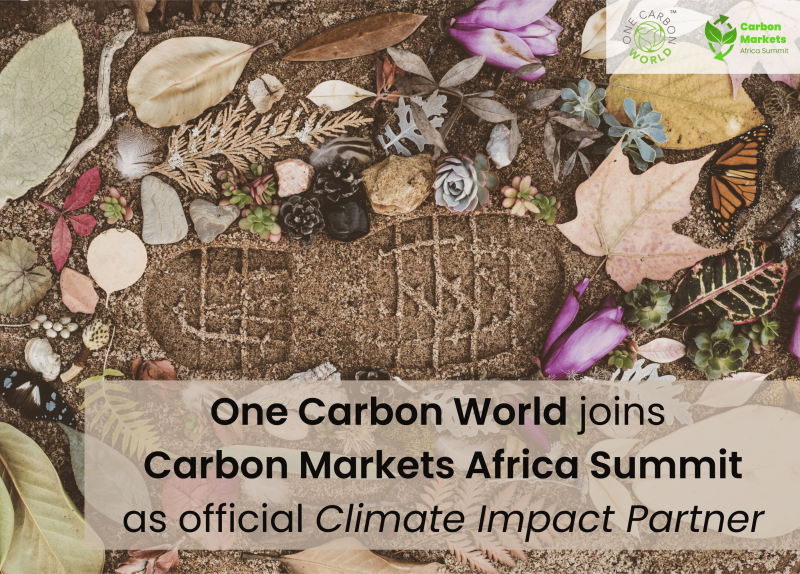
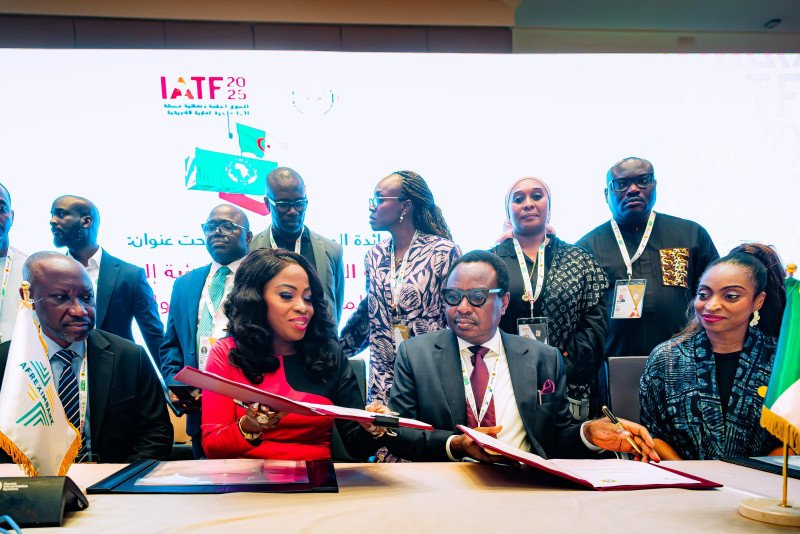
![Flooded streets in the Philippines illustrate the urgent need for effective climate adaptation projects. [photo credit: Noel Celis | Greenpeace]](https://ecofriendlytip.com/wp-content/uploads/2025/09/GP0SU6A0V.jpg)
![Greenpeace banners calling for climate justice [photo credit: Noel Celis | Greenpeace]](https://ecofriendlytip.com/wp-content/uploads/2025/07/NC0012-scaled.jpg)
![The ICJ just gave us a new weapon in the fight for climate justice. Will Marcos act? [photo credit: Noel Celis | Greenpeace]](https://ecofriendlytip.com/wp-content/uploads/2025/07/NC00019-scaled.jpg)
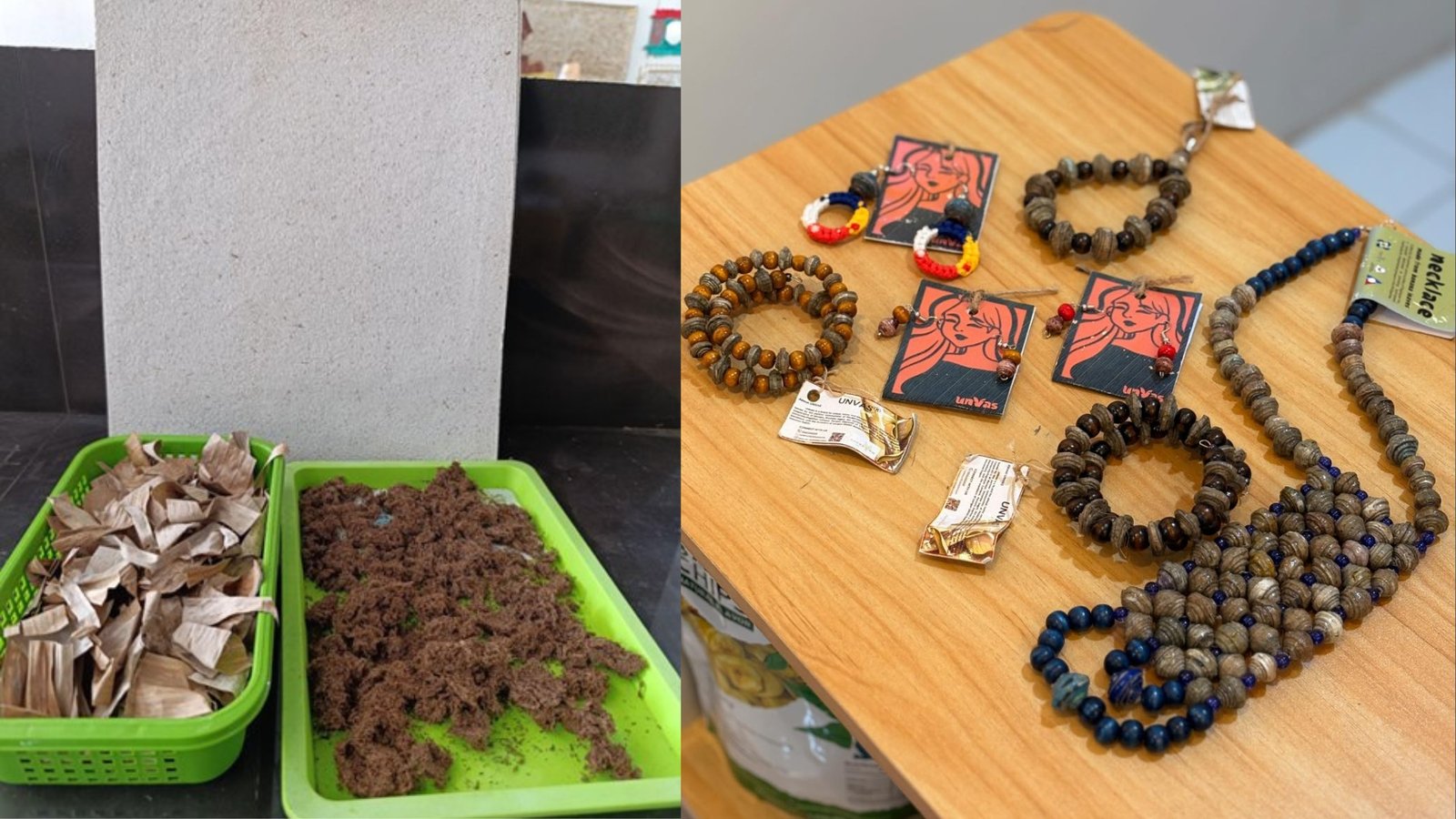
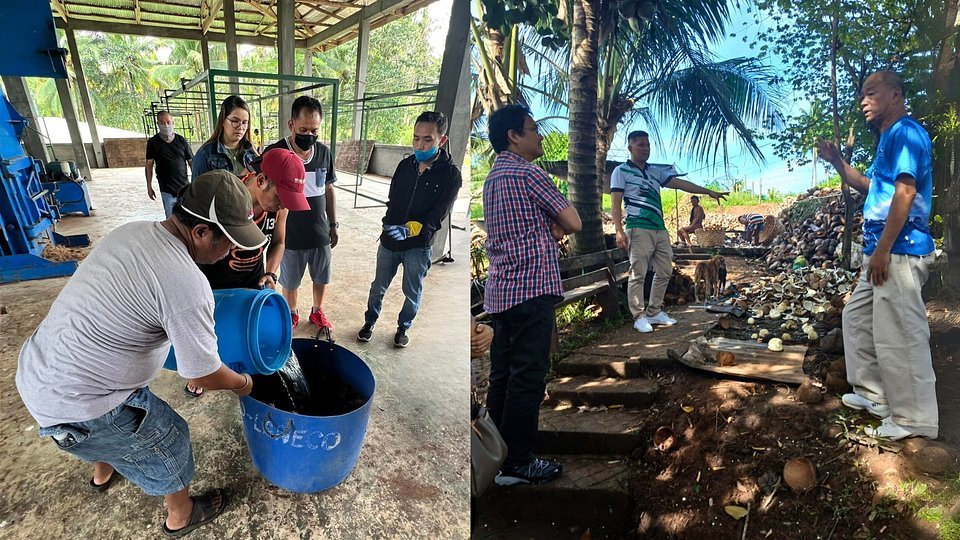


Leave a Reply